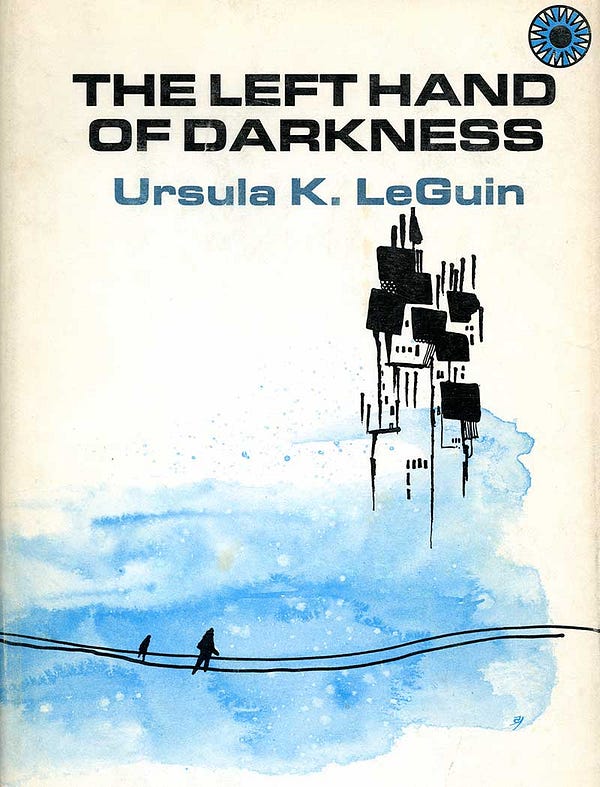
Much has been said about the main thought in experiment in The Left Hand of Darkness, Ursula K. LeGuin, the implications of a civilization without gender.
While it is absolutely worth reading for its merits on this idea alone, I also found it really interesting to observe the attitude and behavior of the protagonist, a sort of missionary of the central empire in the universe trying to bring the offerings of advanced civilization to a less developed world. I’ve read tons of 50,000 foot history of colonialism and imperialism, many first person narratives of colonized peoples, but few first hand narratives of meek, well intentioned missionaries like this one.
Notes and quotes (but not too many)…
He talked much about pride of country and love of the parentland, but little about shifgrethor, personal pride or prestige. Had Karhide lost so much prestige in the Sinoth Valley business that the subject could not be brought up? No; for he often talked about the Sinoth Valley. I decided that he was deliberately avoiding talk of shifgrethor because he wished to rouse emotions of a more elemental, uncontrollable kind. He wanted to stir up something which the whole shifgrethor-pattern was a refinement upon, a sublimation of. He wanted his hearers to be frightened and angry. His themes were not pride and love at all, though he used the words perpetually; as he used them they meant self-praise and hate. He talked a great deal about Truth also, for he was, he said, “cutting down beneath the veneer of civilization.”
It is a durable, ubiquitous, specious metaphor, that one about veneer (or paint, or pliofilm, or whatever) hiding the nobler reality beneath. It can conceal a dozen fallacies at once. One of the most dangerous is the implication that civilization, being artificial, is unnatural: that it is the opposite of primitiveness… Of course there is no veneer, the process is one of growth, and primitiveness and civilization are degrees of the same thing. If civilization has an opposite, it is war. Of those two things, you have either one, or the other. Not both. It seemed to me as I listened to Tibe’s dull fierce speeches that what he sought to do by fear and by persuasion was to force his people to change a choice they had made before their history began, the choice between those opposites.
“Fear’s very useful. Like darkness; like shadows.” Estraven’s smile was an ugly split in a peeling, cracked brown mask, thatched with black fur and set with two flecks of black rock. “It’s queer that daylight’s not enough. We need the shadows, in order to walk.”